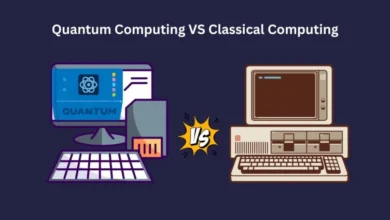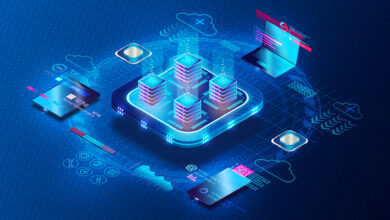The Human-AI Collaboration Revolution: How Automation Is Redefining Work

The rise of automation has initiated a profound shift in the workplace, transitioning from mere task execution to a collaborative dynamic between humans and AI. This synergy enhances productivity and fosters innovative problem-solving. As traditional job roles evolve, new opportunities emerge that demand a blend of human creativity and AI efficiency. Understanding this revolution requires an exploration of the skills necessary for success in this transformed landscape. What does the future hold for the workforce?
The Evolution of Work: From Automation to Collaboration
As industries have progressed, the shift from automation to collaboration has fundamentally transformed the landscape of work.
This evolution has fostered an environment where remote work thrives, allowing individuals to seek greater job satisfaction.
By prioritizing teamwork over mechanistic tasks, organizations cultivate a culture that empowers employees, enhancing their sense of autonomy and fulfillment.
Ultimately, this shift is redefining traditional notions of productivity and success.
Enhancing Human Capabilities: The Role of AI in the Workplace
Artificial Intelligence (AI) is increasingly augmenting human capabilities in the workplace, fundamentally reshaping how tasks are approached and executed.
Through AI assistance and cognitive enhancement, productivity tools enable effective decision support and workflow optimization. This fosters creative collaboration and knowledge sharing while facilitating task automation.
Additionally, AI enhances emotional intelligence and provides performance feedback, empowering individuals to excel in their roles and embrace newfound freedom.
Redefining Job Roles: New Opportunities in an Automated World
While the rise of automation may seem daunting to some, it also presents an array of new opportunities for job roles in various sectors.
Job creation is not solely about replacing human effort; it involves role transformation, where individuals can pivot to positions that leverage their uniquely human skills.
As automation evolves, the workforce can embrace these changes, fostering innovation and adaptability.
Read also: The Rise of Cloud-Native Applications: Building for Scalability and Speed
Essential Skills for Thriving in a Human-AI Partnership
The evolution of job roles in an increasingly automated environment necessitates a reevaluation of the skills required for success in human-AI collaboration.
Essential skills include:
- Advanced communication strategies
- Adaptive problem-solving techniques
- Critical thinking abilities
- Emotional intelligence
- Technical proficiency in AI tools
Cultivating these competencies fosters a productive partnership, empowering individuals to navigate the complexities of a collaborative, automated workplace effectively.
Case Studies: Successful Human-AI Collaborations Across Industries
Numerous industries have harnessed the potential of human-AI collaboration to drive significant advancements.
In healthcare, AI has transformed diagnostics, while manufacturing sectors have achieved unprecedented efficiency through smart automation.
Additionally, the financial industry has seen automation streamline analysis processes, demonstrating the multifaceted benefits of these partnerships.
Healthcare Diagnostics Enhancement
As advancements in artificial intelligence continue to reshape various sectors, healthcare diagnostics stands out as a field experiencing transformative enhancements through human-AI collaboration.
This synergy has led to improved diagnostic accuracy and patient outcomes, leveraging AI algorithms and machine learning for better data integration and predictive analytics in clinical decision making.
Key benefits include:
- Enhanced healthcare efficiency
- Reduced diagnostic errors
- Faster patient assessments
- Personalized treatment plans
- Improved resource allocation
Manufacturing Efficiency Boost
Human-AI collaboration is not limited to healthcare diagnostics; it is also making significant strides in the manufacturing sector.
Companies are harnessing manufacturing robotics alongside AI systems to achieve process optimization. For instance, real-time data analysis allows for adaptive workflows, significantly increasing production efficiency.
These case studies illustrate how intelligent automation can empower workers, enhancing creativity while streamlining operations in a freedom-oriented environment.
Financial Analysis Automation
How can financial institutions leverage the power of AI to enhance their analytical capabilities? By automating financial analysis, organizations can improve efficiency and accuracy.
Successful human-AI collaborations showcase benefits such as:
- Enhanced financial forecasting
- Real-time data visualization
- Improved risk assessment
- Streamlined reporting processes
- Increased operational agility
These advancements empower financial professionals, granting them the freedom to focus on strategic decision-making.
The Future of Work: Embracing Change and Innovation
The future of work is increasingly defined by the rapid pace of technological advancements, necessitating a shift in how individuals and organizations approach their roles and responsibilities.
As automation and artificial intelligence become integral to various industries, workers must cultivate new skills that align with these innovations.
Embracing this change not only enhances productivity but also redefines career pathways, highlighting the importance of adaptability in a transforming job market.
Adapting to Technological Advancements
As industries evolve in response to rapid technological advancements, organizations must cultivate a mindset that embraces change and innovation.
Key factors for success include:
- Enhancing technological literacy among employees
- Fostering a culture of continuous learning
- Encouraging workforce adaptability to new tools
- Implementing flexible work structures
- Promoting collaboration between humans and AI
This proactive approach ensures organizations thrive in an ever-changing landscape.
Skills for Future Jobs
While traditional skill sets may no longer suffice, the emergence of new technologies mandates a reevaluation of competencies required in the workforce. Essential skills now include soft skills, technical literacy, and adaptability. Employers increasingly value emotional intelligence and critical thinking, as well as lifelong learning and digital fluency. The table below highlights these essential skills for future jobs.
| Skill | Description |
|---|---|
| Soft Skills | Communication and teamwork |
| Technical Literacy | Proficiency with digital tools |
| Adaptability Skills | Flexibility in changing environments |
Conclusion
In conclusion, the Human-AI collaboration revolution is not a threat to employment but a catalyst for transformation, enhancing human capabilities and creating new opportunities. While some may fear job displacement, the integration of AI fosters a workforce that prioritizes emotional intelligence and critical thinking—skills uniquely human. As industries adapt to this new paradigm, embracing change will be essential for both individual fulfillment and organizational success, ultimately paving the way for a more innovative and agile future.




